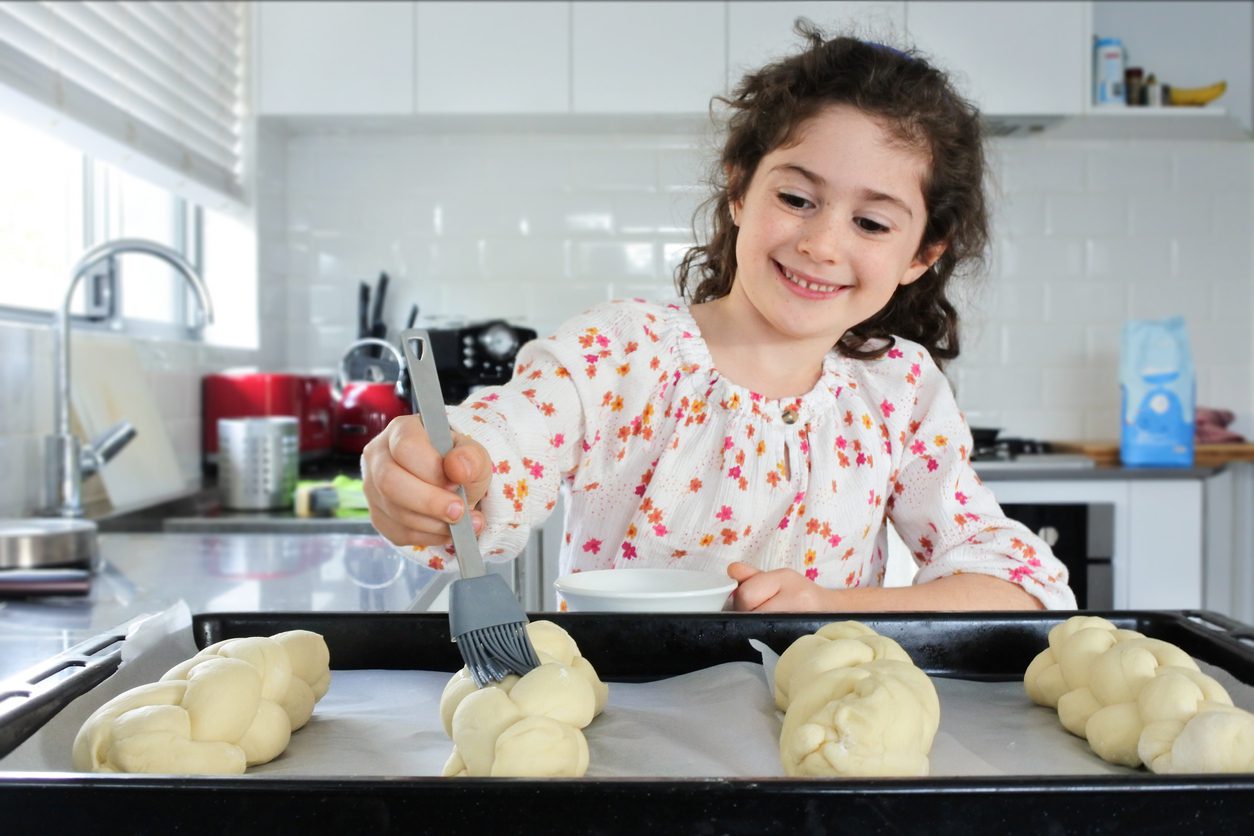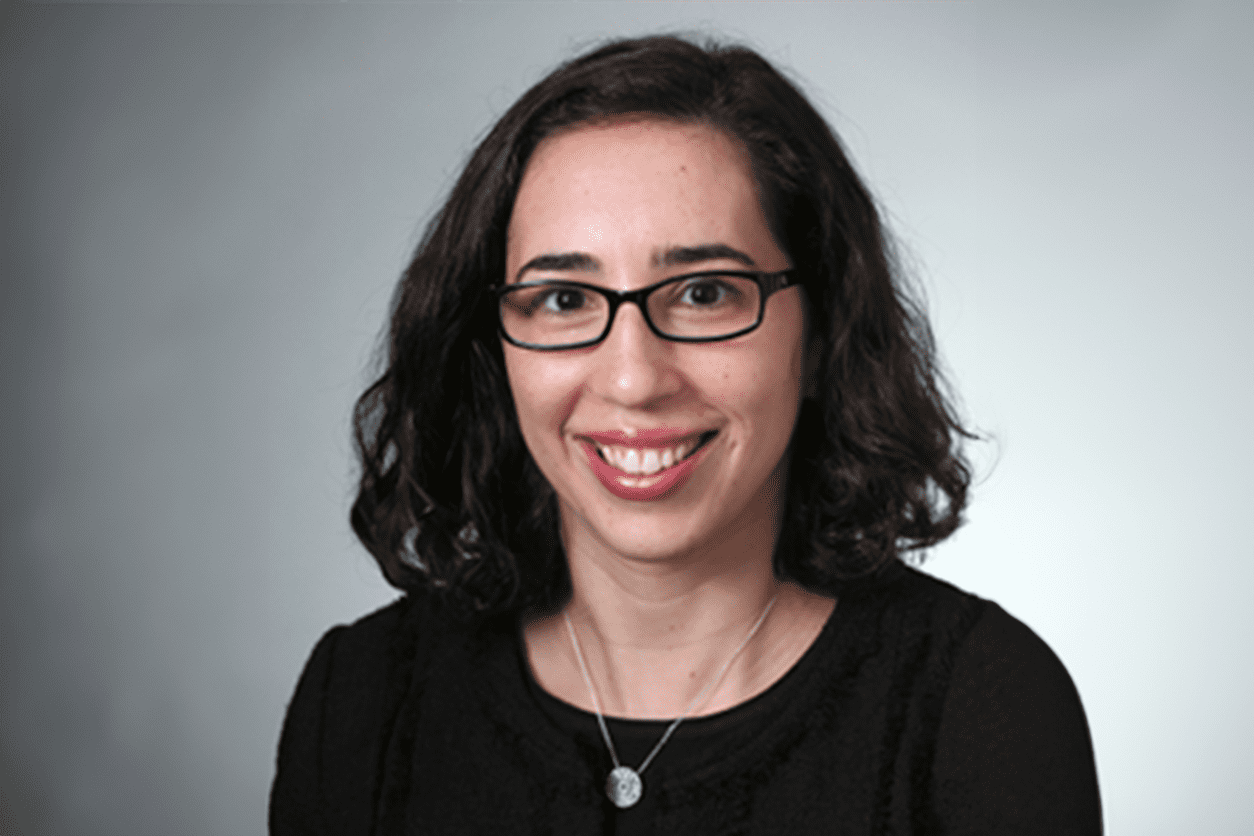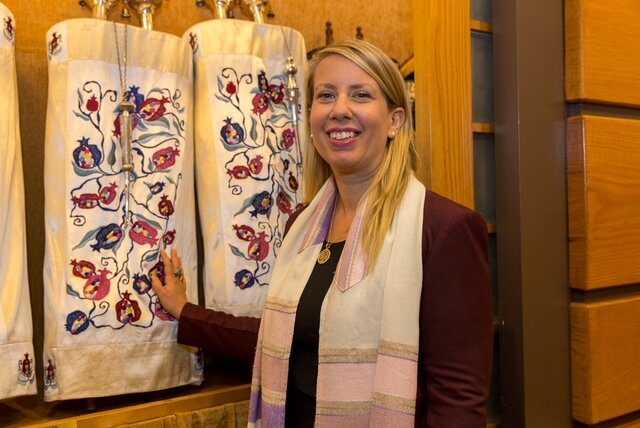By Ziva Hassenfeld
When my best friend from college came to visit me for a weekend, she began to cry as we walked up to my synagogue with our kids. I asked her why and she said, “Don’t you see how sad it is that there have to be all the police around just so you can go to synagogue and not be shot?” Of course, I had noticed the uptick in police presence since the 2016 election, the Unite the Right rally in Charlottesville and the Tree of Life synagogue shooting in Pittsburgh. My colleague, professor Jonathan Sarna, has done detailed work on the antisemitism that pulsed quite explicitly through the Jan. 6 riot at the capital. But through it all, it didn’t ever strike me as tragic.
Seeing my friend’s tears made me question the lack of my own, especially given the relative differences in our lives. My friend loves her Jewish identity but doesn’t live an active Jewish life, whereas I’m immersed in Judaism both personally and professionally. Seeing her tear up at the entrance of my synagogue raised a fundamental question for me: Why was I uncomfortable with her tears?
After giving it a lot of thought, I realized that I came at the question both personally and professionally—as a parent and as a professor of education. On the one hand, there’s no question that antisemitism is terrifying and its uptick in America alarming. We should do all we can to quell its upsurge; we all support the fight against it—politically, financially and socially. But the question I always return to is how do we want to educate our children? In no uncertain terms, I am sure that the right approach to Judaism presents it as a wealth of resources, a textual tradition that delights and a toolbox for a life of intentionality. There’s no room for centering a reaction to antisemitism in such an approach. I am convinced we must avoid inducting our children into a stance of defensiveness and instead show them a Judaism that we offer as a gift. The gift, as I see it, is particularly compelling ways of reading, organizing the rhythm of our lives and finding meaning.
A colleague of mine is currently working on a study of Jewish children reading and interpreting the story of the Hebrew midwives from Exodus 1. It is remarkable the difference in meaning the students take from this story. Some understood it as a tale of moral conviction—about being an upstander and not a bystander and the moral compass in each of us as individuals. Others understood it as the first historical account in the endless history of persecution of the Jewish people. In these students’ reading, the story of the Hebrew midwives and the infanticide they were tasked with stresses the need for Jewish sovereignty. Of course, as researchers we withhold judgment, but I must admit how striking I found the data in the context of thinking about antisemitism and education. I not only want a generation of kids who are taught a story of being moral upstanders instead of a story of the lachrymose narrative of Jewish history, but also I believe it will be kids raised in this first educational milieu who will emerge most resilient in the face of antisemitism.
My children will grow up at least aware that they are living through a particularly vivid era of antisemitism in this country. Nothing I can do can change that; the only question that is left to answer is how we should educate and orientate our children in such a world. For me, the answer is clear: The strength of Jewish life is found first and foremost in a constructive outlook.
When approached in this way, being Jewish becomes reading the text of the world a certain way. Through these ways of reading, our children develop the capacity to find meaning and to stay resilient in the face of the inevitable challenges.
Ziva R. Hassenfeld is the Jack, Joseph and Morton Mandel Assistant Professor in Jewish Education at Brandeis University. She lives in the Boston area with her husband, Jonah Hassenfeld, director of learning and teaching at Schechter Boston, and their three children.
 Share your story
Share your story 




